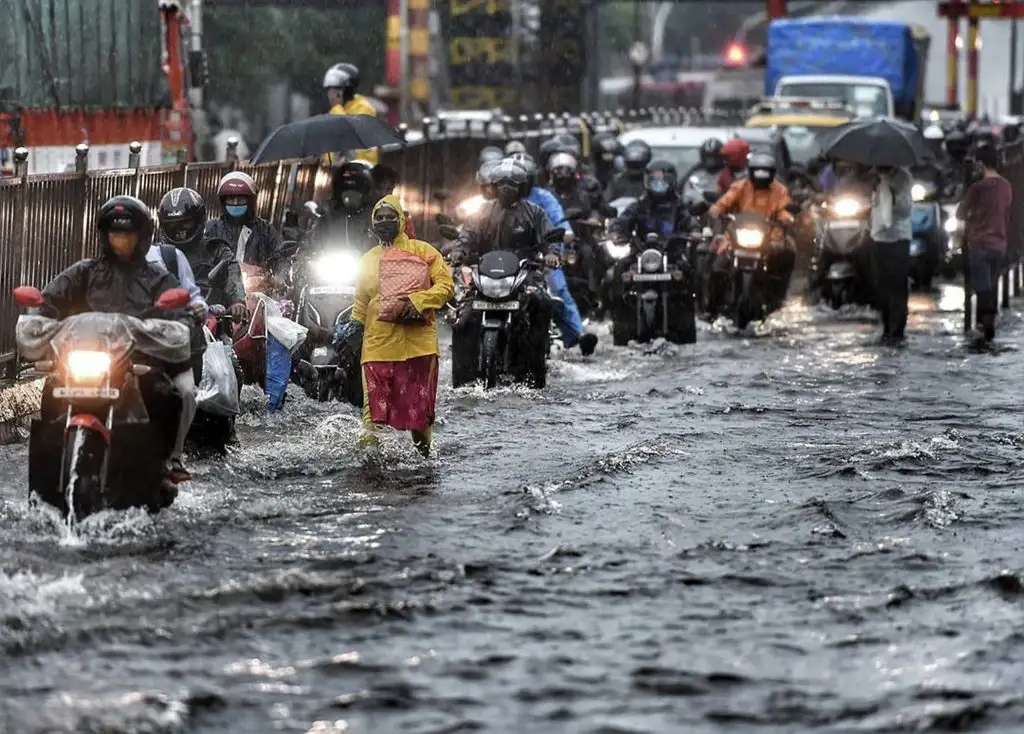Can Water Be India’s Best Defence Against Climate Change?

May 26, 2025, was not an ordinary day for Mumbai. The city witnessed its earliest monsoon in 75 years and the heaviest single day rainfall of 107 years – 300mm rain in just 24 hours, nearly 15% of its annual average. Streets turned into rivers, local trains halted, schools and offices closed, and hospitals overflowed.
This wasn’t an anomaly. Every year, extreme rainfall events lead to loss of life, outbreaks of waterborne diseases, and economic paralysis. Globally, water related disasters account for 70% of all the deaths related to natural disasters.
In India, climate change is turning water into both a threat and a lifeline. From flash floods in Himachal to droughts in Karnataka, the country is caught in a paradox: too much water, too little water and rarely the right kind.
Yet, water remains underrepresented in climate discourse. While clean energy, transport, agriculture, and forests dominate the conversation, the interlinkages between water, food, ecosystems, and energy are often overlooked.
The Climate-Water-Health Crisis
India is among the most water-stressed nations globally. Climate change is intensifying this stress by disrupting the water cycle with erratic monsoons, glacier melt, and rising sea levels are altering both the availability of fresh water and quality of water.
This has direct public health consequences. Waterborne diseases such as diarrhoea, typhoid, and hepatitis remain widespread. In 2022, 46% of the water quality data of 603 rivers were identified as polluted. According to the 2024 Annual Groundwater Quality report, nearly 20% of the groundwater samples exceeded permissible nitrate levels, with states like Rajasthan, Tamil Nadu and Maharashtra exceeded the limit in 40% of samples. These are linked to agricultural runoffs and fertilizer overuse. High nitrate exposure is particularly harmful for children increasing the risks of methemoglobinemia and other health issued.
Groundwater quality is critical because 60% of irrigation and 85% of drinking water depend on it. Yet contamination from fluoride, arsenic, nitrate and iron continues to pose serious health and environmental risks.
Urban Flooding and Infrastructure Gaps
Urban India is increasingly vulnerable to urban flooding. Poor drainage, unplanned construction, and outdated water and wastewater infrastructure amplify the impact of changing climate such as extreme rainfall. The 2019 Chennai water crisis and the 2025 Mumbai downpour are not isolated events. They are warnings.
Studies show that 55% of Indian subdivisions have experienced 10% increase in heavy rainfall in the last decade, while 33% of the land is drought prone. The World Bank estimates that climate-induced water scarcity could reduce India’s GDP by up to 12% by 2050.
The Food Security Link
Water and food security are deeply intertwined. Lack of safe and reliable water supply affects our ability to grow food crops, raise livestock and cook food. Water directly impacts agricultural productivity and the availability of nutritious food for human consumption. Agriculture consumes over 80% of India’s freshwater, however inefficient irrigation and continued reliance on water-intensive crops like sugarcane and rice dominate. Climate induced droughts and floods are reducing yields and farmers income.
A 2023 FAO report highlighted that extreme weather occurrences of floods, wildfires, pest outbreaks, have caused $3.8 trillion in agricultural losses globally over the past 30 years. Water scarcity intensifies competition and undermines food systems, threatening both nutrition and livelihoods.
A multi-sectoral Prescription
India urgently needs a water-first climate strategy that brings together health, agriculture, urban planning, and ecosystems in a unified approach. This means prioritising resilient infrastructure by investing in rainwater harvesting, water conservation methods, decentralized wastewater treatment, efficient stormwater management, and planning cities to better withstand floods. Strengthening public health systems is equally crucial, especially by improving access to WASH (Water, Sanitation and Hygiene) services and building early warning systems to detect and respond to disease outbreaks linked to water-related issues.
In agriculture, reforms should focus on promoting micro-irrigation, encouraging crop diversification, and adopting agroecological practices to enhance both sustainability and productivity. At the same time, food systems must be viewed through the lens of water security. Encouraging dietary shifts, building sustainable supply chains, and reducing food waste are vital steps.
Effective water governance requires reliable, real-time monitoring and integrated resource management that includes active community participation. Innovation and research should be directed towards lesser-explored areas such as plant architecture, root structure, and transpiration efficiency. There is also a need to expand research and development around water-nutrition linkages and climate-smart water technologies.
Finally, scaling these integrated solutions will require new financial tools. Developing water resilience bonds, blended finance models, and outcome-based financing mechanisms can help channel resources where they are most needed and drive long-term impact.
India has launched several national programs and schemes, including Jal Jeevan Mission, Atal Bhujal Yojana, PM KUSUM, POSHAN Abhiyan, and zero liquid discharge mandates. However, the implementation remains uneven, and coordination across ministries and programs is essential.
Governance or Climate? It’s Both
Some argue that India’s water crisis is stems more about governance failures than climate change. Indeed, fragmented policies, institutional silos and chronic under investment have long plagued the sector. But climate change is a threat multiplier. It exposes and accelerates existing vulnerabilities. Ignoring its role would be like treating a symptom without diagnosing the root cause.
Water creates life and without it, there will be none. The paradox of ‘water, water everywhere, not any drop to drink’ is no longer a poetic fiction. It is becoming our lived reality. But it doesn’t haven’t to be our future.
India must treat water not just as a resource, but as a climate solution. A National Mission on Water Resilience spanning health, agriculture, cities, and ecosystems could be our best hope against a drowning future.
Bhawna Prakash is a Senior Advisor on Water Systems, Governance, and Strategy, and an alumna of the Harvard Kennedy School.
